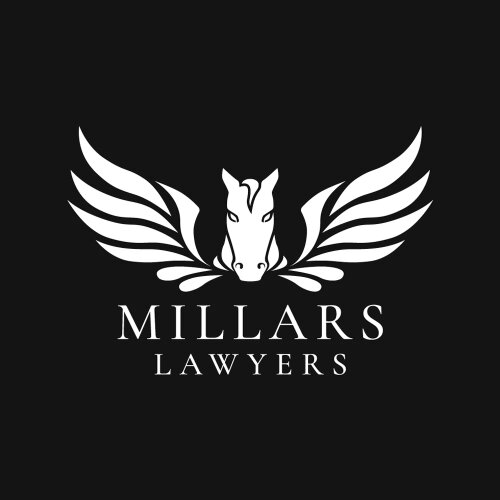Best Workers Compensation Lawyers in Canada
Share your needs with us, get contacted by law firms.
Free. Takes 2 min.
Or refine your search by selecting a city:
List of the best lawyers in Canada
About Workers Compensation Law in Canada
Workers Compensation Law in Canada is designed to provide financial and healthcare support to workers who are injured or become ill due to their work environment. It ensures that employees receive benefits to cover medical expenses, rehabilitation costs, and lost wages while protecting employers from lawsuits. Each province and territory in Canada has its own workers' compensation board or commission responsible for overseeing and enforcing these laws, reflecting local industry needs and employment practices.
Why You May Need a Lawyer
While many workers' compensation claims proceed smoothly, there are several situations where legal assistance might be necessary:
- Claim Denial: Your claim is denied, and you believe the denial is unjustified.
- Insufficient Benefits: You are awarded benefits that do not fully cover your losses.
- Employer Disputes: Your employer disputes your claim or the circumstances of the injury.
- Complex Cases: Case complexities that arise due to pre-existing conditions or multifaceted accidents.
- Retaliation: You face adverse actions by your employer after filing a claim.
Local Laws Overview
Understanding the local laws relevant to workers' compensation in Canada is crucial. Here are key points to consider:
- Provincial and Territorial Jurisdiction: Each province and territory manages its workers' compensation system, with specific rules and regulations.
- Mandatory Coverage: Most employers are required to have workers' compensation coverage, but exemptions and specific conditions may apply.
- No-Fault System: Canada’s system is generally no-fault, meaning workers receive compensation without needing to prove employer negligence.
- Benefit Types: Benefits may include temporary or permanent disability benefits, medical benefits, and vocational rehabilitation.
- Time Limits: It’s critical to adhere to time limits for reporting injuries and filing claims, which vary by jurisdiction.
Frequently Asked Questions
What should I do immediately after a workplace injury?
Report the injury to your employer promptly, seek medical attention, and document everything related to the incident.
How do I file a workers' compensation claim?
Claims are usually filed through your province or territory’s workers' compensation board. You will need to fill out specific forms and provide necessary documentation.
Can I choose my own doctor for treatment?
This depends on the local regulations of your province or territory. Some allow you to choose your doctor, others may require you to see approved medical providers.
What if my employer does not have workers' compensation insurance?
If required by law, employers must have this insurance. If they don’t, they could face legal penalties, but you may still receive compensation through a special fund in some jurisdictions.
Is there a deadline for reporting an injury or illness?
Yes, each jurisdiction has specific time limits for reporting incidents, typically ranging from a few days to a few weeks.
What if my claim is denied?
You can appeal the decision with the appropriate workers' compensation board or seek legal advice to understand your options further and strengthen your appeal.
What types of injuries are covered by workers' compensation?
Most injuries or illnesses directly related to your job are covered, including physical injuries and occupational diseases.
Can I sue my employer if I receive workers' compensation benefits?
Generally, no. The system is designed to replace litigation, but exceptions exist, such as cases of gross negligence.
Are mental health issues covered?
Certain mental health conditions, such as those resulting from workplace trauma or harassment, might be eligible for compensation, depending on local laws.
Are all workers eligible for compensation benefits?
While most workers are covered, some categories, like independent contractors, may have different rules, which can vary by jurisdiction.
Additional Resources
Here are several helpful resources for understanding and navigating workers' compensation in Canada:
- Provincial Workers' Compensation Boards (such as WorkSafeBC, WSIB Ontario, CNESST in Québec)
- Canadian Centre for Occupational Health and Safety (CCOHS)
- The Office of the Worker Adviser (OWA) for legal advice
- Legal Aid Services in your region for low-cost or free legal assistance
- Unions or worker associations that may offer guidance
Next Steps
If you need legal assistance with a workers' compensation claim, consider taking the following steps:
- Research Your Issues: Understand the specific problems you face in your claim.
- Consult a Lawyer: Look for a lawyer with experience in workers' compensation in your province or territory.
- Prepare Documentation: Gather all documents, including medical records, accident reports, and previous communications related to your case.
- Contact a Legal Professional: Set up a consultation to discuss your case and explore your options.
- Consider All Options: Besides legal action, seek mediation or appeal through your workers' compensation board.
Lawzana helps you find the best lawyers and law firms in Canada through a curated and pre-screened list of qualified legal professionals. Our platform offers rankings and detailed profiles of attorneys and law firms, allowing you to compare based on practice areas, including Workers Compensation, experience, and client feedback.
Each profile includes a description of the firm's areas of practice, client reviews, team members and partners, year of establishment, spoken languages, office locations, contact information, social media presence, and any published articles or resources. Most firms on our platform speak English and are experienced in both local and international legal matters.
Get a quote from top-rated law firms in Canada — quickly, securely, and without unnecessary hassle.
Disclaimer:
The information provided on this page is for general informational purposes only and does not constitute legal advice. While we strive to ensure the accuracy and relevance of the content, legal information may change over time, and interpretations of the law can vary. You should always consult with a qualified legal professional for advice specific to your situation.
We disclaim all liability for actions taken or not taken based on the content of this page. If you believe any information is incorrect or outdated, please contact us, and we will review and update it where appropriate.
Browse workers compensation law firms by city in Canada
Refine your search by selecting a city.
















